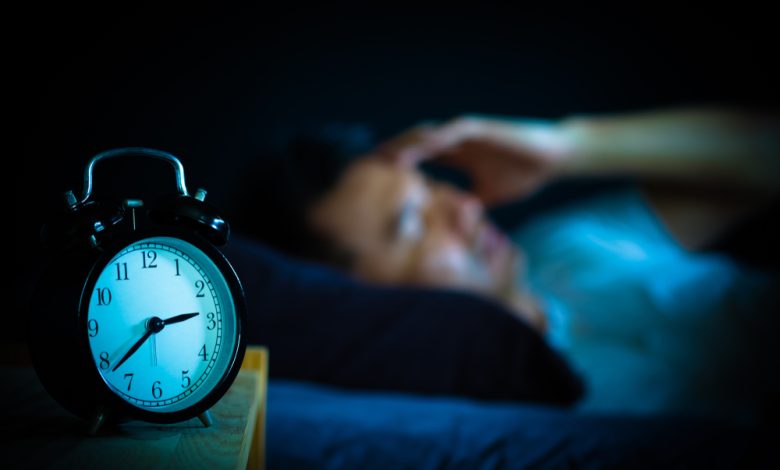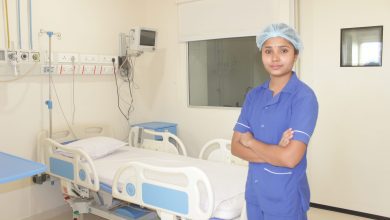
Almost one-third of adults in America do not get enough sleep. A significant sleep problem affects 30% of the general population, often one that has persisted for a long time. Consistent sleep deprivation or poor sleep quality impacts mood, behavior, and performance at work, school, and home. If you are one of them, visiting a good lung and sleep disorder center in Riverview, Michigan, is better.
One of the most frequent complaints seen by general practitioners is sleep disorders. However, healthcare professionals may mistake a sleep disorder for another clinical problem. Considering these disorders and their often serious consequences, awareness of the wide range of categorized sleep disorders is growing, but more quickly is needed. If you are also facing problems with sleep, paying attention to your sleeping and breathing could help you avoid a misdiagnosis.
Why Do Healthcare Professionals Misdiagnose Sleep Disorders?
Due to gaps in their training, healthcare practitioners still need to gain an understanding of sleep problems and their types. According to a 1998 survey of UK medical schools, in a typical 5-year undergraduate course, the median amount of time devoted to formal instruction regarding sleep and its disorders was only 5 minutes. There is no reason to believe that the situation has changed and improved since then. We can’t say that the deficiency diminishes with improved training. Not even in fields like pediatrics, psychiatry, or geriatrics, where the prevalence of sleep disorders is very high.
Even now, medical staff does not frequently inquire about sleep symptoms, and when therapy is recommended, there is still an excessive dependence on the medicine. Even though they know the side effects of using too much medicine, This happens because there are many other clinical diseases of direct relevance among the 90 or more sleep disorders.
Let’s have a look at sleep disorders with similar clinical diseases.
Sleep disorders and other clinical diseases
There are many meaningful connections between sleep disorders and other clinical diseases. In addition, sleep disorder often gets neglected in medical schools.
Sleep disorders and psychiatry
1. Commonly, sleep disturbances can happen because of psychological problems resulting from effects on emotional state and behavior. It also affects performance at work or school, family and social life, and quality of life in general.
2. Unwanted effects of psychiatric medications include sleep disturbance, which can be severe. Examples include excessive sleepiness produced by different drugs and insomnia caused by some SSRIs. Detailed reviews of psychotropic medicines that induce sleepiness or insomnia have been published recently.
3. Unbalanced sleep is a common feature of psychiatric disorders at all ages.
4. Disturbance in sleep, including circadian sleep-wake rhythm disturbance, can significantly affect your mind and cause psychiatric problems. Insomnia or hypersomnia can indicate the start or recurrence of psychiatric problems.
Sleep Disorders in Neurology and General Medicine
1. It is also appropriate to mention connections with clinical practice in neurology and other medical specialties to signify the widespread relevance of sleep issues and the importance of this for liaison psychiatric services.
2. Some general medical drugs (for example, those used in cardiac disease, respiratory disease, hypertension or Parkinson’s disease) are reported to disrupt sleep or sleep disorders. Parasomnias may be triggered by beta-blockers and anti-parkinsonian agents (nightmares) or by treatments for neurodegenerative disease (RBD).
3. Most medical issues in children and adults are complicated by sleep disturbances.
4. Certain sleep disorders predispose to medical conditions. Night shift work disorder is linked with peptic ulcers, ischaemic heart disease, and pregnancy problems. OSA can lead to hypertension and stroke and can exacerbate epilepsy.
5. Some sleep disorders are essentially medical in type, for example, some cases of RBD, nocturnal epilepsy, and obstructive sleep apnea (OSA), which can foretell the emergence of neurodegenerative disorders.
What are the Effects of Misdiagnosing Sleep Disorders?
The effects of misdiagnosed sleep disorders on the general public include the following:
- The general public often fails to see sleep disturbance as requiring professional advice. For example, only a minority of those with such a severe sleep problem as obstructive sleep apnea seek medical attention. Commonly, parents (especially those with children with neurodevelopmental issues) think that sleep problems are typical and cannot be treated or prevented, which is not valid. Parents may well interpret the effects of partly biologically based sleep disturbances in teenagers as ‘typical adolescent waywardness’.
- Both specialist physicians and GPs, including psychiatrists, also may need to learn the extent to which symptoms of sleep problems can overlap with those of other diseases and conditions with the inevitable risk of, at least, diagnostic uncertainty.
- Educational psychologists and teachers encounter the school problems of some children and adolescents without necessarily realizing that the common problem of inadequate sleep causes them.
How To Overcome Misdiagnosis of Sleep Disorders?
The risk of misdiagnosis can be overcome by the awareness of their main characteristic features. A patient may have a combination of sleep issues and other clinical problems of a different nature, especially in adult age. Therefore, it is essential that each complaint and its cause, including the possibility of a sleep disorder, are noticed carefully. Doctors should conduct a sleep history because they neglect this must-do thing very much.
-
Sleep History Assessment
Taking the patient’s sleep history is necessary to determine what the patient is going through and whether the doctors should prescribe it to the patient according to their disorder. Doctors generally ask the patient these types of questions, and if you’re a patient reading this blog, you can ask these questions yourself.
- Do you feel any problem getting off to sleep or staying asleep?
- Are you very sleepy or tired during the day?
- Do you have any disturbing sleep episodes at night?
-
Other Important Things to Ask
In many ways, sleep and its disorders are critical topics in clinical practice. The risk is that such disorders are mistaken for psychiatric or other clinical disorders. In this way, doctors provide incorrect advice and treatment to their patients, which can cause significant problems in the future.
After the sleep history, details like the patient’s psychiatric, medical, and social histories should be taken. It includes patient habits like caffeine, alcohol, or nicotine consumption because these are mostly the reasons that affect sleep. Furthermore, the patient’s mattress or other similar issues should also be noticed. Perhaps the patient has experienced trauma or has a lot of work to do, causing them trouble sleeping. A family history of sleep disorders might also be the reason.
Conclusion
This blog highlights the relevance of sleep issues to clinical practice in psychiatry and other diseases. This is because of the lack of sleep disorder training in medical schools. Therefore, professional training in sleep disorders should be considered as necessary as any other health problem. If you’re having sleep difficulty, then take this issue seriously and find a good sleep medicine specialist in Michigan. Don’t search for your sleep problems on google. Instead, ask your sleep doctor about your issues, as he can better guide you!
ALSO READ: What is neuropathic pain, exactly?






